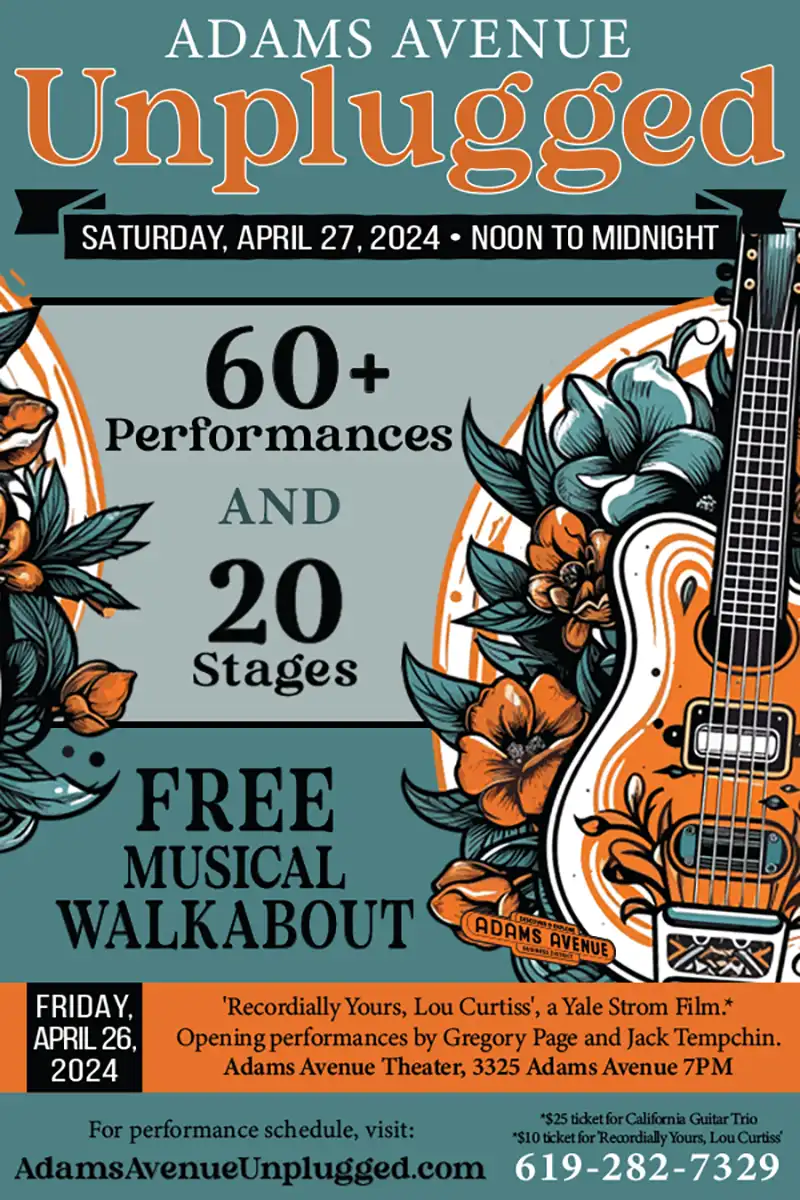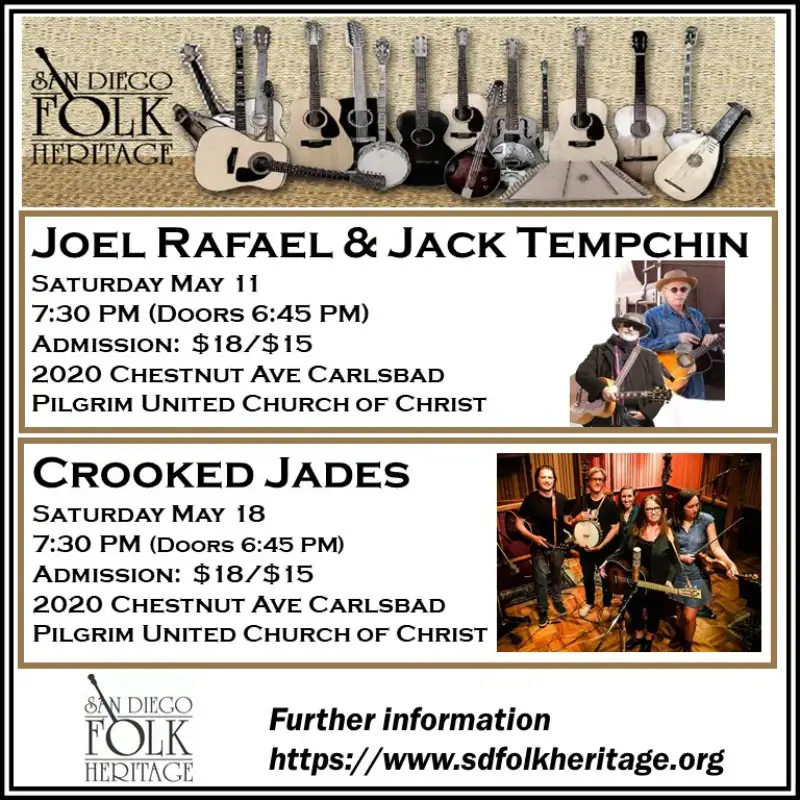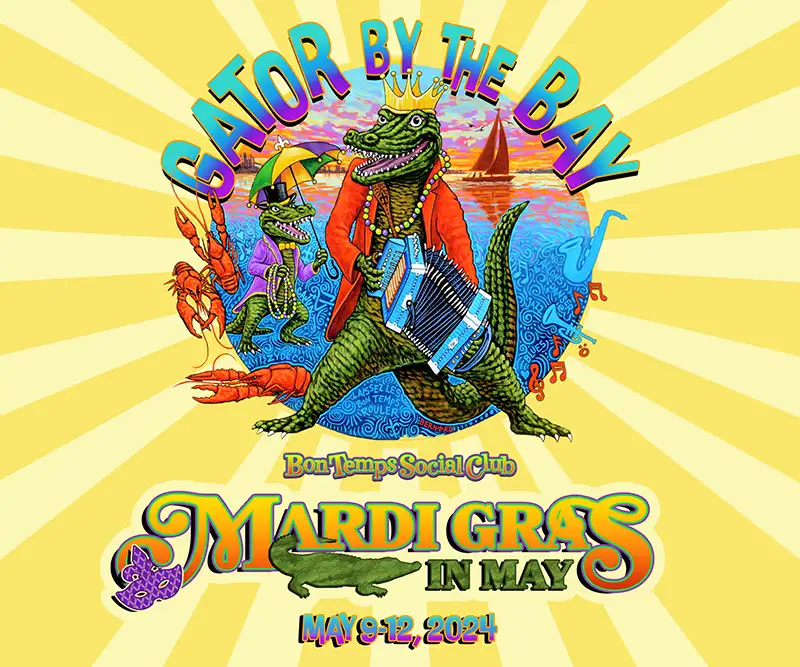Featured Stories
Bob McKewen: I wish I was in “Dixie,” Land, that is.
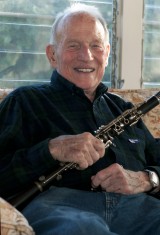
Bob McKewen. Photo by Steve Covault.
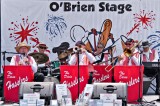
McKewen (far left) with the Dixie Hasslers at the Del Mar Fair
Enter through the O’Brien gate of the San Diego County Fair on any given Friday or Saturday, and you will be treated to the sights and sounds of the dixieland group, the Dixie Hasslers, a musical fixture there for the past 58 summers. On stage you’ll see the incomparable Bob McKewen, joyfully playing his well-traveled clarinet, with smooth flowing melodic lines and hip improvisational phrases, not frequently heard from your typical octogenarian reed player. He’s been on board with the Hasslers since 1958, dazzling fair goers not only with his lively playing on the licorice stick, but also with his immense repertoire of one liners, accompanied with a dead pan delivery that would have made Jack Benny proud. The 2012 edition of the Dixie Hasslers, under their new moniker, the Swingin’ Hasslers, unite exclusively for the annual San Diego County Fair gig. McKewen gave up the reigns as leader this year to trombonist Dale Saare after McKewen took the leadership role following Dixie Hassler founder Bart Hazlett’s death a few years back. In previous years the Hasslers performed six days a week at the fair, fondly remembered by many of us as the Del Mar Fair. “I’ve enjoyed the gig, even as I go into my 54th consecutive year playing it,” McKewen states. “The six days a week got a bit too much for me.” In their earlier years the Dixie Hasslers played many of the dixieland-oriented gigs and functions, particularly around the Sports Arena area, in addition to being regulars at the annual San Diego Thanksgiving Dixieland Jazz Festival at the Town & Country complex in Mission Valley.
He’s played thousands of gigs with just about every working swing, dixieland, and jazz outfit in town, including the Bob Crosby Orchestra, the aforementioned Dixie Hasslers, the South Market Street Jazz Band, the High Society Jazz Band, and, over recent years, traveling the jazz festival circuit with the Chicago Six. “I made some of my best recordings with the South Market Street Jazz Band,” McKewen says. “That was a dynamite band, a high point for me, particularly invigorating with the jazz style they were playing.” Also memorable were his days with local favorites The Chicago Six. “That was a fun band. We traveled to festivals everywhere in the U.S., Canada, and Mexico; we even flew to Milan, Italy, for a two-hour gig, flying back right after the gig to San Diego. I was a zombie upon return; I must have slept for a week.”
A resident of America’s Finest City for over half a century, McKewen has come a long way from his musical roots in the Bronx during his days at Cardinal Hayes High School, a stone’s throw away from Yankee Stadium.
“I started learning the clarinet in ninth grade but really wanted to play the trumpet,” he says. “It was 1943, the middle of World War II, so all the instrument makers weren’t making new instruments, because they were busy making bombs and bullets for the war effort, so the only instrument available was the clarinet.” As a senior in high school, McKewen realized he could get hired to play dances if he doubled on saxophone, so he took up the tenor sax at that juncture.
“Everybody was expected to double on saxophone back in that day,” he explained, “plus the sax is easier to play than the clarinet.” During that time he studied with Leo Paul, a busy woodwind player around New York City, who had his own teaching system called the “singing tone” method. After graduation, McKewen spent a year in Boston, studying at the Schillinger House in Boston’s Back Bay, which later became the Berklee School of Music and currently the Berklee College of Music.
At the advent of the Korean War, McKewen auditioned for the First Army Band. After being accepted, he took his basic training in North Carolina, then wound up stationed back in the New York City area. “It was one of those spit and polish deals, we had dress blue uniforms with all the trimmings,” he said. Eventually his number came up to go overseas, and he was sent to Berlin, Germany, for one year. Upon his return to the states in 1954, he was enrolled for a semester at NYU in Manhattan (back then there was an uptown campus in the Bronx as well). There, through a mutual friend, he met his future wife, moved to California, and got married, with no regrets 58 years later.
“It was good to get out of the rat race in New York, even got my folks to move out here eventually,” he said. “No big regrets leaving the music scene back there.” He went on to teach in the San Diego school system, retiring in 1986, during which time he played a lot of pit band gigs, many at the now defunct Circle Arts Theatre in Kearny Mesa,doubling on oboe and English horn for many of their shows. “After retirement, I was ready to play jazz exclusively,” he said, “especially since I had more freedom with all five of our children out on their own.” He has been a busy man ever since, sometimes playing three gigs in a day, something this author can attest to first hand, having played a number of casuals (one-time event gigs) over the years with him. He’d have a wedding gig at the Hotel Del Coronado in the day, followed by a Clark Kent wardrobe change from a tux to a dixieland outfit for a gig at Seaport Village, concluding with adorning a yarmulke for an evening bar mitzvah gig at Temple Emanu-El. Even with his busy family and gig schedule, he managed to also juggle being concert band director at Mesa College from 1981 to 1992. “I really enjoyed that — nice people there, and we gave concerts all around town,” he quipped.
One of his sons, Dave, plays drums with the Siers Brothers, a long-time popular dance band in the San Diego area.”We started him out with trombone lessons, encouraging his musical interests,” McKewen said, “but his arms were too short to reach the seventh position on the instrument, so he took up the drums.” On the subject of the Siers Brothers, he continued, “Dave tells me that the longevity and success of the Siers Brothers is the fact they don’t play for a living, whereby being more relaxed about not having to depend on the band as sole income.”
One of McKewen’s most proudest musical moments was when he played a half dozen or so gigs with the legendary Bob Crosby Orchestra, which included Eddie Miller, one of his long-time heroes, who, like McKewen, doubled on tenor sax and clarinet, and is a member of both the Big Band and Jazz Music Hall of Fames. “I was in awe getting to play with him,” he says proudly. Former trumpet legend John Best, also a long-time member of the Dixie Hasslers, recommended McKewen to Crosby, a former La Jolla resident. “It was a little taste of what it must have been like in the big band heyday when Crosby and Glenn Miller were on top. Was great to have the people crowding near the bandstand to enjoy the sounds, quite a hoot.” Another high water mark was McKewen’s 2004 CD recording, Jazz Reflections, a duo album with veteran San Diego bassist, composer and piano man, and Richard James, a fellow New York transplant as well. One blurb in the album’s liner notes validates McKewen’s quest to play and record the jazz music he loves to play: “he has broken the chains which bound him to the written arrangement, enabling him to embrace jazz joyfully.”
For all the bright moments that occur in any musician’s career, there are always a couple of gig horror tales along the way. “There was this one outdoor gig in Temecula,” he recalls, “on a night that felt colder than the North Pole, and as you may have guessed, everyone’s fingers in the band began freezing up, creating some not so desirable musical results.” Another less-than-memorable musical moment occurred during a gig at the rodeo at San Diego Country Estates “It started to rain during the event. They had a tarp over the band, but as the rain continued, it weighted down the middle of the tarp, proceeding lower and lower until just about reaching the drummer’s head. In trying to protect his head, he used his drumstick to ward off the tarp, but wound up puncturing a hole in it, whereby showering the whole band.”
For now, the sprite and energetic 83-year-old still loves getting out and playing, keeping busy with gigs at senior homes, and freelancing with a handful of bands now and then at dixieland and swing jazz clubs and restaurants. “I hate to practice; I love to play,” he says, “and I’m still looking for a reed I can live with.”
As for advice to younger woodwind players coming up, he says, “Be prepared to play orchestra gigs and to double and triple on various woodwinds. Also, get out and play casuals, although with the advent of electronics, finding work as a horn player can be a rough go these days.” McKewen’s life journey as a musician, teacher, proud father, and family man, combined with cherished musical memories, optimism and his passion for life, serve as a great role model for those musicians pursuing a similar path. Never short for words, the quick witted woodwind wizard left me with one final positive retort: “I’m still vertical, and that’s all that counts.”


